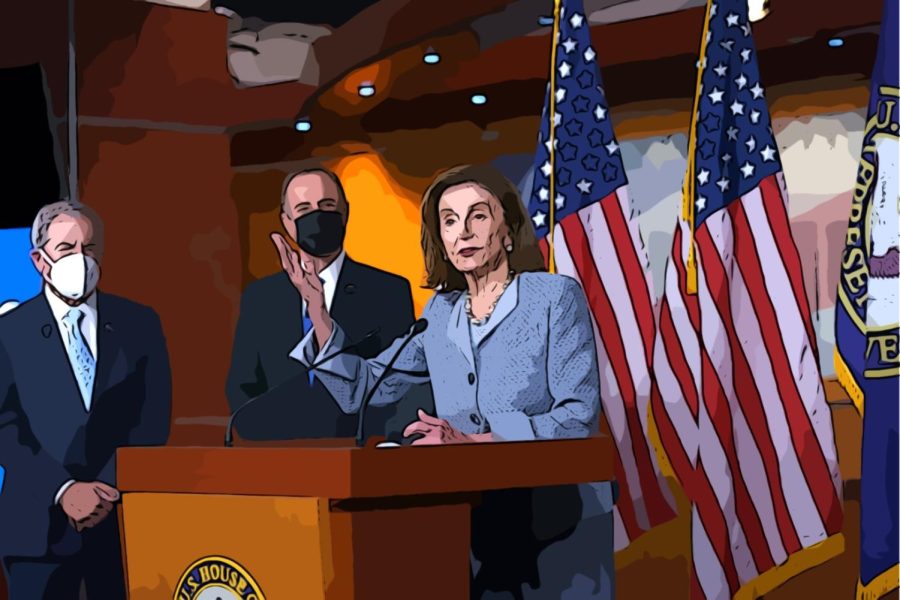House Democrats Move Forward In Limiting the U.S. President’s Political Power
House Speaker Nancy Pelosi, California Representative Adam Schiffer and Kentucky Representative John Yarmuth discussing the “Protecting Our Democracy” Act.
Sep 27, 2021
Democrats of the House of Representatives have introduced new legislation limiting any presidential exploits in response to actions taken by former President Donald J. Trump during his time in office, such as pardoning over 143 individuals and his relationship with Ukraine. On Tuesday, House Speaker Nancy Pelosi announced the new legislation, the “Protecting Our Democracy” Act with chief sponsor and California Rep. Adam Schiff, Chairman of the House Permanent Select Committee on Intelligence.
The PODA was first introduced during the 116 Congress in January 2017 as an investigation to examine any attempts by the Russian government or other governments to interfere with the 2016 presidential election. Later on, it was reintroduced in September 2020 as a balance of powers between the three branches of democracy.

This reintroduced bill aims to improve transparency within the federal government by preventing foreign countries or officials from interfering with the United States election, requiring a release of tax records for presidential candidates, strengthening checks on the president from any violation according to any means by U.S. law and making it more difficult for presidents to pardon people and get involved in potential conflicts.
“I think balancing our U.S. system among the three branches of powers is important because we have a democracy which has started since the United States became independent. The PODA package sounds like it can help some restrictions from one branch being more powerful politically than the other,” freshman Pedro Ribas said. In the U.S. House of Representatives news briefing, Pelosi stated “executive power had been gradually growing for years but that threats to the system of separation of powers seriously picked up steam during the Trump administration.”
Pelosi and Schiff appeared with lawmakers and Democrats such as New York representatives Chairman of the House Committee on the Judiciary Jerrold Nadler, Chairwoman of the House Committee on Oversight and Reform Carolyn Maloney and Chairman of the House Budget Committee and Kentucky Rep. John Yarmuth.
The PODA will be a bill similar to the one introduced around the time of the Watergate Scandal in 1974. The scandal ended as a result of former President Richard Nixon resigning after the scandal involving the White House and Congress declaring impeachment, hence reducing the powers of the executive branch.
“The United States is a unique country in the sense that we have the freedom of speech or the freedom of the press since not everyone has that type of freedom in countries that are ruled by a dictatorship…seeing how the last administration found exploits on U.S. laws and took advantage of that since the Watergate Scandal is just beyond my prediction in mind,” freshman Lesday Viera said.
The PODA package will be introduced to the House of Representatives on Sept. 21, 2021. If it advances through the House of Representatives, it will move towards the Senate where the package would need at least ten republicans to support the final vote. If it then passes in the final vote, future presidents and their staff would see more rules applied to their positions than any past administration.
























